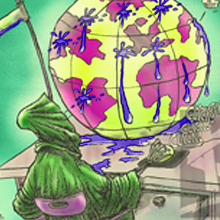
El humor gráfico ha jugado un papel muy importante en la lucha de liberación de muchas personas, transmitiendo a través de imágenes inmediatas ideas, críticas, sentimientos de estas almas que buscan reencontrarse, tener gobiernos democráticos y honestos. En esta vasta África de mil pueblos, etnias, geografías y naciones, Tanzania destaca como un país donde, a pesar de toda la censura y la opresión, ha sabido expresar su humor.
Para comprender mejor esta realidad contamos con el testimonio de los artistas Popa Matumula y Fred Halla. Aunque el cartoonismo es un arte contemporáneo con influencia europea, pero tu historia tiene raíces antiguas, ¿de dónde viene tu humor?
Fred Halla – Sí, nuestro humor es ancestral y testimonio de ello son estos dibujos en las rocas que estaban allí incluso antes de que fuéramos un país. Parece ser el arte rupestre más antiguo de todos.
Popa Matumula - El humor tiene raíces ancestrales, pero debido a la mezcla cultural en esta era de globalización, también existe, como usted dice, una fórmula contemporánea importada de Europa para afrontar la realidad, a partir de la cual se desarrollan los dibujos animados.
¿Hay muchos caricaturistas en Tanzania?
Fred Halla: Sí, muchos. Por lo tanto, puedo mencionar, por ejemplo, a Ali Masoud 'KIPANYA”, King Kinya, Fred Halla, Chris Shola, Abdallah Masoud, Popa Matumula, Mussa Ngarango, Haji abeid, Noah Yongolo, Cloudy Chatanda, James Gayo, Danniel Mzena, Fadhil Mohamed, Adam Lutta. , Abdul King O, Francis Bonda, Oscar Makoye, Sammi Mwamkinga, Nassoro Mjusi, Robert Mwampembwa, Ibra Washokera, Sagawala, David Chikoko, Sra. Zaituni Sayeedea, Simon Regis, Ahmed Viriyala, Supa Deo, Chris Katembo….
Popas Matula - Entre los pioneros se encuentran Christian Gregory, Philip Ndunguru, Ibra Radi Washokera, luego John Kaduma, Masoud Kipanya, Kijasti y Fred Halla.
¿Existe en su país una prensa especializada en humor?
Popa Matumula: Depende de las estaciones, a veces hay algunas, luego tienen que desaparecer, luego reaparecen. Aquí en Tanzania teníamos tres o cuatro tabloides humorísticos semanales, pero desafortunadamente todos dejaron de publicarse. Personalmente, dirigía una de estas publicaciones, llamada «Macho» (palabra swahili para ojos), pero nos quedamos sin fondos antes de poder establecernos. Luego está toda la prensa que publica caricaturas regularmente. Por ejemplo, aquí tenemos unos 15 diarios y casi todos utilizan dibujos editoriales y cómics..
¿Por qué te decidiste por este género artístico? ¿Crees que tus raíces se manifiestan en tus rasgos o eres más occidentalizado?
Fred Halla: Por pasión y como una forma de expresar mejor mis ideas sobre el mundo y aunque el género puede ser global, creo que incorporo la cultura africana, ayudando así a transformar nuestra comunidad, política, social y culturalmente.
Popa Matumula: Cartoon ha sido como mi altavoz para expresar mis opiniones a mi gente, al mundo y especialmente a los tomadores de decisiones. Creo que fue esta verdad la que me llevó a dedicarme al área, tratando de entretener a la gente de manera positiva y al mismo tiempo transmitir el mensaje. El africanismo aparece más cuando trato temas locales, naturalmente
¿Cómo reaccionan sus políticos? ¿Existe alguna censura oficial?
Popa Matumula - Tanzania era una nación de partido único, pero después del colapso del bloque del Este también se produjeron algunos cambios. Uno de los cambios fue el surgimiento de la prensa privada. En ese momento, las caricaturas editoriales se desarrollaron aún más. Fui uno de los primeros en dibujar caricaturas que desafiaban al sistema a través del entonces tabloide quincenal «Fahari» en 1989. Por lo tanto, las caricaturas editoriales siguen siendo un fenómeno nuevo, por lo que a algunos políticos no les gustan, especialmente cuando las caricaturas tienen un carácter negativo. opinión en contra de ellos. Pero al mismo tiempo se alegran cuando la caricatura tiene una opinión positiva sobre ellos y una opinión negativa sobre sus oponentes. ¡Qué hipocresía! Tenemos un departamento gubernamental que se ocupa de los medios de comunicación y es este departamento el que actúa como censor oficial.
Fred Halla: La censura es esencialmente una presión gubernamental sobre los editores y, a veces, incluso hay una presión más agresiva, especialmente si el tema es la religión.
Popa Matumula: Por supuesto, hay cuestiones étnicas que obstaculizan la risa democrática. Como todo el mundo sabe, hay sensibilidad en materia religiosa. ¡No podemos dibujar todo lo que pensamos! Incluso si queremos ser más irreverentes, los editores lo bloquearán.
¿Crees que el humor puede ayudar a democratizar el mundo? Si puedes reír con todos, ¿puede la paz ser una realidad universal?
Popa Matumula / Fred Halla: ¡Sí, eso creemos! Si no hay hipocresía, sí, la paz puede ser una realidad universal.
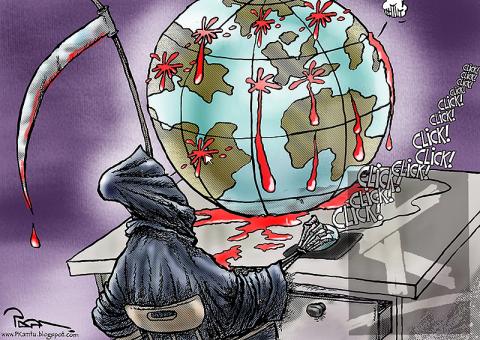
Popa Matumula
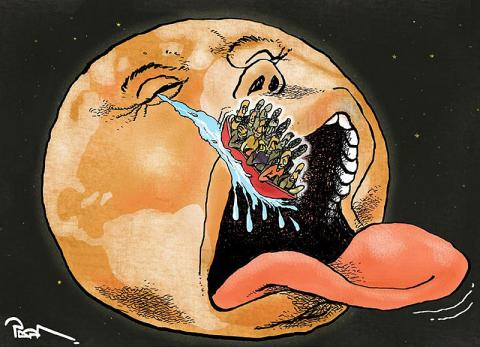
Popa Matumula
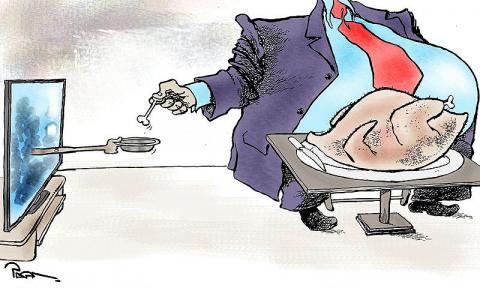
Popa Matumula
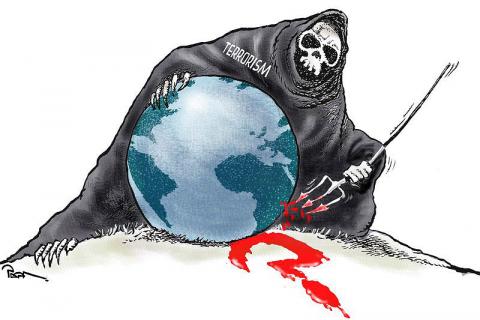
Popa Matumula
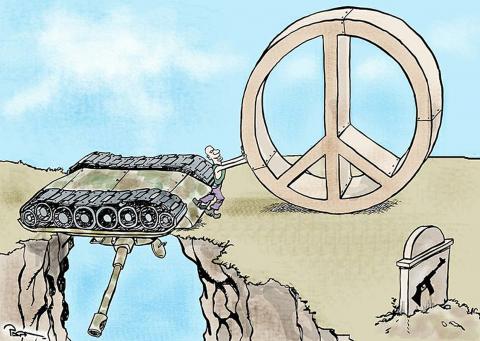
Popa Matumula
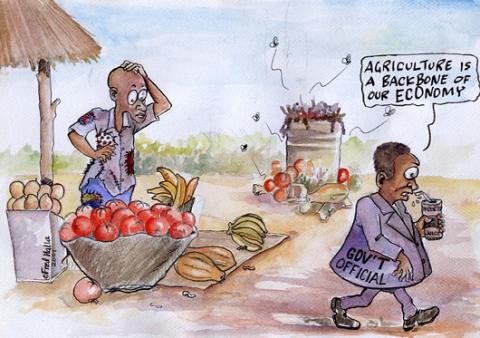
Fred Halla
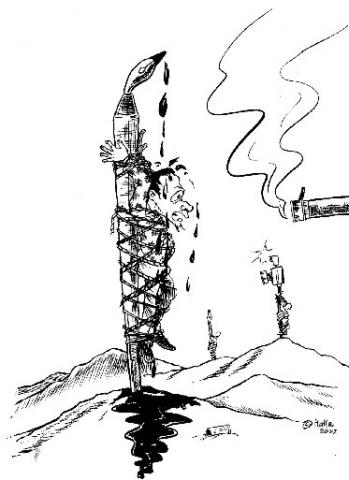
Fred Halla
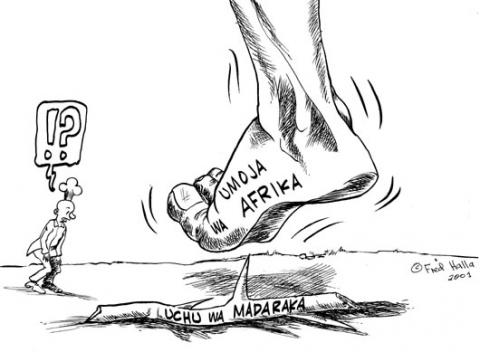
Fred Halla
Humors of the World – Tanzania (Popa Matumula / Fred Halla)
By: Osvaldo Macedo de Sousa
Cartoonism has played a very important role in the liberation struggle of many people, transmitting through immediate images ideas, criticisms, feelings of these souls looking to find themselves again, to have democratic and honest governments. In this vast Africa of a thousand peoples, ethnicities, geographies and nations, Tanzania stands out as a country where, despite all the censorship and oppression, it has managed to express its humor.
To better understand this reality, we have the testimony of artists Popa Matumula and Fred Halla. Although cartoonism is a contemporary art with European influence, but your story has ancient roots, where does your humor come from?
Fred Halla – Yes, our humor is ancestral and testimony to this are these drawings on the rocks that were there even before we were a country. It appears to be the oldest rock art of all.
Popa Matumula - Humor has ancestral roots, but because of the cultural mix in this era of globalization, there is also, as you put it, a contemporary European import formula for facing reality, from which cartoons develop.
Are there many cartoonists in Tanzania?
Fred Halla: Yes, many. I can therefore mention for example Ali Masoud 'KIPANYA”, King Kinya, Fred Halla, Chris Shola, Abdallah Masoud, Popa Matumula, Mussa Ngarango, Haji abeid, Noah Yongolo, Cloudy Chatanda, James Gayo, Danniel Mzena, Fadhil Mohamed, Adam Lutta, Abdul King O, Francis Bonda, Oscar Makoye, Sammi Mwamkinga, Nassoro Mjusi, Robert Mwampembwa, Ibra Washokera, Sagawala, David Chikoko, Mrs Zaituni Sayeedea, Simon Regis, Ahmed Viriyala, Supa Deo, Chris Katembo….
Popas Matula - Among the pioneers are Christian Gregory, Philip Ndunguru, Ibra Radi Washokera, then John Kaduma, Masoud Kipanya, Kijasti and Fred Halla.
Is there a specialized humor press in your country?
Popa Matumula: It depends on the seasons, sometimes there are some, then they have to disappear, then they reappear. We had three or four weekly humorous tabloids here in Tanzania, but unfortunately, they all stopped being published. Personally, I ran one of these publications, called «Macho» (Swahili word for eyes) but we ran out of funds before we could establish ourselves. Then there is all the other press that regularly publishes cartoons. For example, we have about 15 daily newspapers here and almost all of them use editorial drawings and comics...
Why did you decide on this artistic genre? Do you think your roots are manifested in your features or are you more westernized?
Fred Halla: Out of passion and as a way to better express my ideas about the world and although the genre can be global, I think I incorporate African culture into it, thus helping to transform our community, politically, socially and culturally.
Popa Matumula: Cartoon has been like my loudspeaker to express my opinions to my people, the world and especially decision makers. I think it was this truth that led me to dedicate myself to the area, trying to entertain people in a positive way while conveying the message. Africanism appears more when I deal with local issues, naturally
How do your politicians react? Is there any official censorship?
Popa Matumula - Tanzania was a one-party nation, but after the collapse of the Eastern bloc, some changes occurred here too. One of the changes was the emergence of private press. At that time, editorial cartooning developed further. I was among the first to draw caricatures that challenged the system through the then fortnightly tabloid «Fahari» in 1989. The editorial cartoon is therefore still a new phenomenon, as a result, some politicians do not like them, especially when cartoons have a negative opinion against them . But at the same time, they are happy when the cartoon has a positive opinion about them and a negative opinion about their opponents. What hypocrisy! We have a government department that deals with the media and it is this department that acts as the official censor.
Fred Halla: Censorship is essentially government pressure on publishers, and sometimes there is even some more aggressive pressure, especially if the topic is religion.
Popa Matumula: Of course, there are ethnic issues that are obstacles to democratic laughter. As everyone knows, there is sensitivity in religious matters. We can't draw everything we think! Even if we want to be more irreverent, editors will block it.
Do you believe that humor can help democratize the world? If you can laugh with everyone, can peace be a universal reality?
Popa Matumula / Fred Halla: Yes, we believe so! If there is no hypocrisy, yes, peace can be a universal reality.
